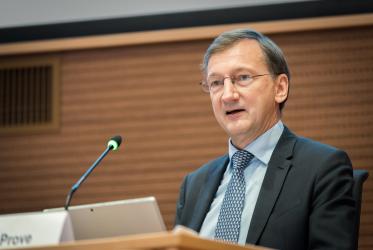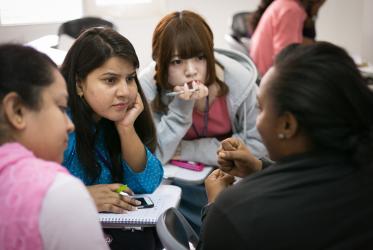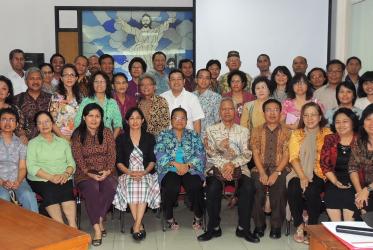Displaying 1 - 10 of 10
Unifying faiths in peace and harmony through dialogue
10 April 2018
WCC remembers the life and ministry of Tony Waworuntu
26 August 2015
Momentum builds for ban on nuclear weapons
16 December 2014
Indigenous faith leaders reflect on resilience and climate change
23 September 2014





